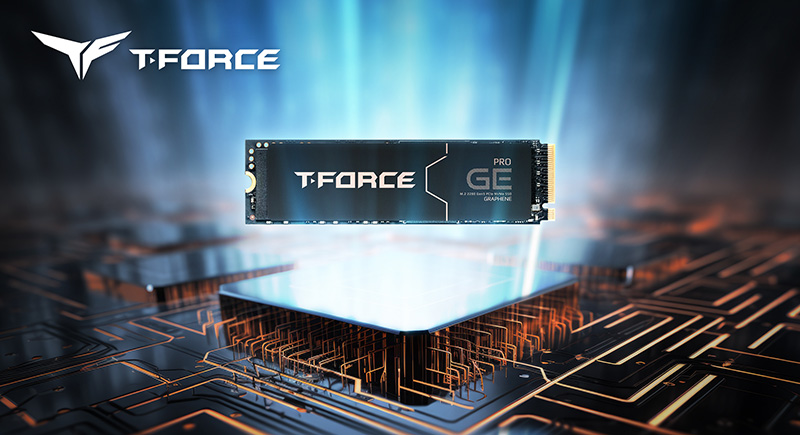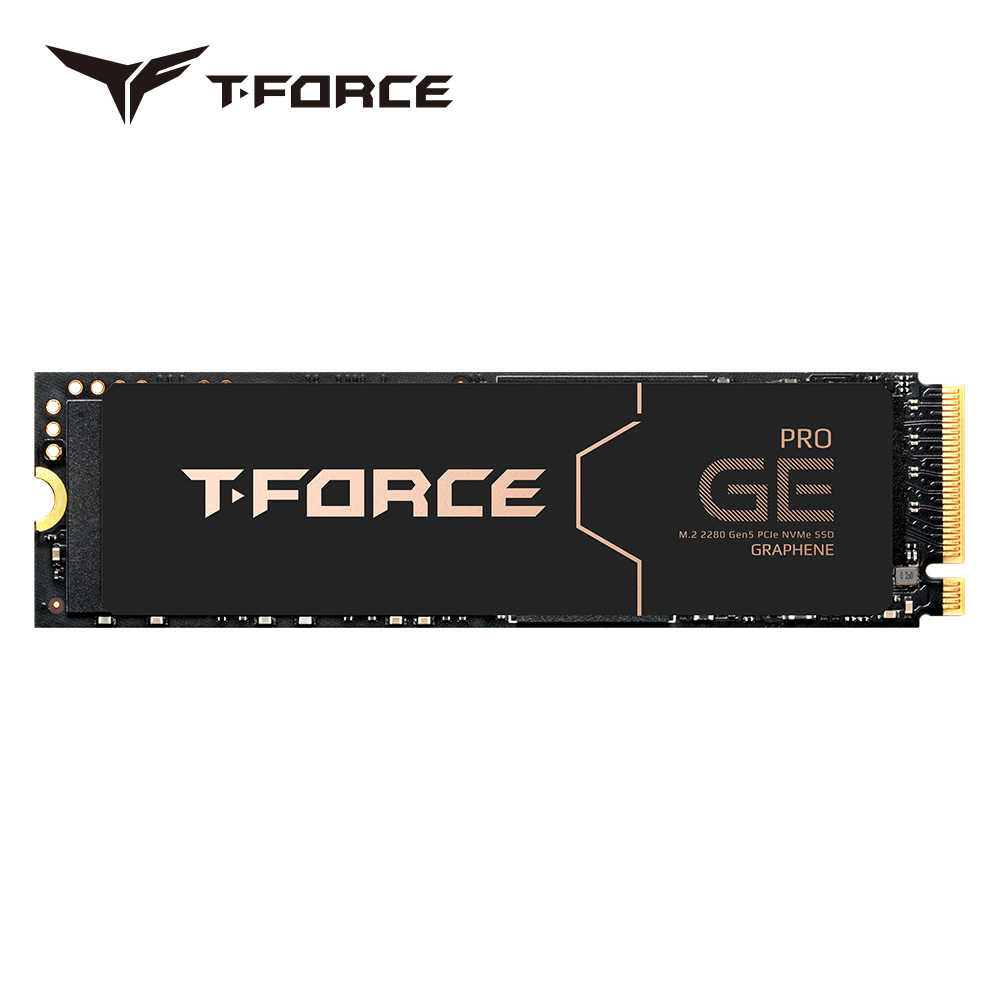
TeamGroup announced its all-new T-Force GE Pro PCIe 5.0 NVMe SSD, which uses the new Innogrit 12nm multicore and energy-efficient IG5666 controller, will debut at CES 2024 in cooperation with Asus. This is one of the few PCIe 5.0 NVMe SSDs that have arrived without the Phison E26 controller that has largely dominated the PCIe 5.0 landscape. The T-Force GE Pro PCIe 5.0 SSD will be ready for pre-order on February 9 via Amazon and Newegg in the US.
The SSD is designed for gamers and enthusiasts who want extreme transfer speeds. The SSD hits read speeds up to 14,000 MB/s, but finer-grained specs aren't available. We do know the GE Pro PCIe 5.0 uses 2,400 MT/s NAND flash and DRAM and SLC caching tech.
The T-Force Pro GE uses what appears to be a pre-applied graphene sticker/heatsink on this SSD, apparently building upon the company's use of the material — Team Group bundled a Graphene heatspreader with earlier drives like the Cardea A440.

The company didn't disclose storage capacities or what type of NAND it uses with the drive, and there isn't a lot of information about the Innogrit IG5666 controller listed on its website, much as we saw with the T-Force Z52A SSD. We do know the GE Pro will use a 2280 form factor, ideal for primary drives for desktop PCs and notebooks, but we'll have to track down more of the finer-grained details at CES.
Team Group is known to have RAM and SSD line-ups, but it also made a couple of SSD coolers for PCIe 5.0 NVMe drives, like the T-Force Siren GD120S AIO cooler exclusively cooling an NVMe drive and the Siren DUO AIO 360 cooler for CPU and NVMe cooling.
The arrival of the Innogrit controller will provide some competition for Phison, which currently dominates the third-party SSD controller ecosystem. We've yet to see newer PCIe 5.0 SSDs using the Silicon Motion SM2508 and SM2504XT controllers that were expected to launch during Q4 2024. The SM2508 controller is expected to power some of the best SSDs this year and will use four Cortex R8 cores and one Cortex M0 core.
The Pro GE is advertised to automatically adjust performance to avoid overheating by using its integrated thermal regulation system, which uses temperature sensors for monitoring purposes. That's pretty standard tech for any SSDs. Details are light for now, but we'll track down the details at CES.







